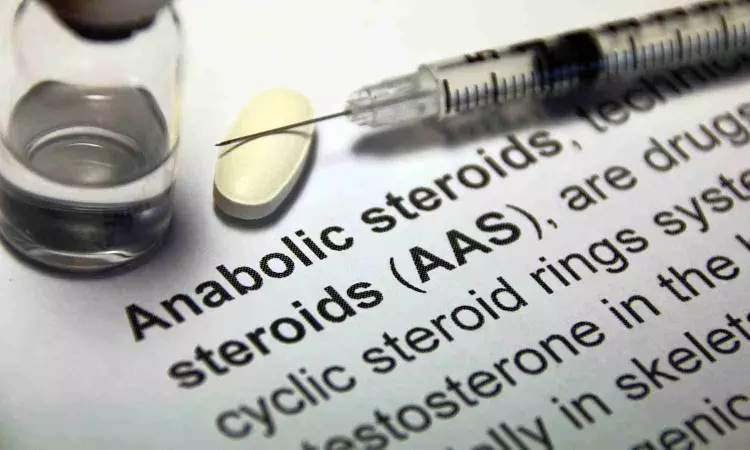- Home
- Medical news & Guidelines
- Anesthesiology
- Cardiology and CTVS
- Critical Care
- Dentistry
- Dermatology
- Diabetes and Endocrinology
- ENT
- Gastroenterology
- Medicine
- Nephrology
- Neurology
- Obstretics-Gynaecology
- Oncology
- Ophthalmology
- Orthopaedics
- Pediatrics-Neonatology
- Psychiatry
- Pulmonology
- Radiology
- Surgery
- Urology
- Laboratory Medicine
- Diet
- Nursing
- Paramedical
- Physiotherapy
- Health news
- Fact Check
- Bone Health Fact Check
- Brain Health Fact Check
- Cancer Related Fact Check
- Child Care Fact Check
- Dental and oral health fact check
- Diabetes and metabolic health fact check
- Diet and Nutrition Fact Check
- Eye and ENT Care Fact Check
- Fitness fact check
- Gut health fact check
- Heart health fact check
- Kidney health fact check
- Medical education fact check
- Men's health fact check
- Respiratory fact check
- Skin and hair care fact check
- Vaccine and Immunization fact check
- Women's health fact check
- AYUSH
- State News
- Andaman and Nicobar Islands
- Andhra Pradesh
- Arunachal Pradesh
- Assam
- Bihar
- Chandigarh
- Chattisgarh
- Dadra and Nagar Haveli
- Daman and Diu
- Delhi
- Goa
- Gujarat
- Haryana
- Himachal Pradesh
- Jammu & Kashmir
- Jharkhand
- Karnataka
- Kerala
- Ladakh
- Lakshadweep
- Madhya Pradesh
- Maharashtra
- Manipur
- Meghalaya
- Mizoram
- Nagaland
- Odisha
- Puducherry
- Punjab
- Rajasthan
- Sikkim
- Tamil Nadu
- Telangana
- Tripura
- Uttar Pradesh
- Uttrakhand
- West Bengal
- Medical Education
- Industry
Use of Androgenic Anabolic Steroids linked to Increased Mortality Rates: JAMA

A recent investigation published in the recent edition of Journal of American Medical Association explored the perilous consequences of androgenic anabolic steroid (AAS) use by uncovering stark findings regarding mortality rates. The study examined the mortality and causes of death among a substantial cohort of AAS users by comparing them with a control group from the general population.
This study by the team of Josefine Windfeld-Mathiasen analyzed the records of Danish males who received a two-year doping sanction, inclusive of sports exclusion, due to the usage of AAS. This research which spanned from 2006 to 2018 identified individuals through sporadic inspections and drug testing conducted in fitness centers across Denmark. This cohort encompassed both occasional and dedicated gym-goers which reflected a broad spectrum of AAS users.
The findings of the study revealed a significant increase in mortality rates among AAS users when compared to the control group. Over the course of the study, 33 AAS users met untimely deaths, while 578 fatalities were observed in the control group. This discrepancy translated to a hazard ratio of 2.81 that indicates a substantially increased risk of mortality among AAS users.
Also, the causes of death among AAS users were deeply concerning, with the fatalities attributing to both natural and unnatural causes. The most prevalent natural causes included cancer and cardiovascular disease that underlined the severe health implications associated with AAS use. Unnatural deaths, primarily stemming from accidents were equally troubling which further emphasized the grave risks posed by these substances. While this study unveils invaluable light on the detrimental effects of AAS use, it also acknowledges the limitations including its observational nature and the absence of adjustments for potential confounding variables.
Source:
Windfeld-Mathiasen, J., Heerfordt, I. M., Dalhoff, K. P., Andersen, J. T., & Horwitz, H. (2024). Mortality Among Users of Anabolic Steroids. In JAMA. American Medical Association (AMA). https://doi.org/10.1001/jama.2024.3180
Neuroscience Masters graduate
Jacinthlyn Sylvia, a Neuroscience Master's graduate from Chennai has worked extensively in deciphering the neurobiology of cognition and motor control in aging. She also has spread-out exposure to Neurosurgery from her Bachelor’s. She is currently involved in active Neuro-Oncology research. She is an upcoming neuroscientist with a fiery passion for writing. Her news cover at Medical Dialogues feature recent discoveries and updates from the healthcare and biomedical research fields. She can be reached at editorial@medicaldialogues.in
Dr Kamal Kant Kohli-MBBS, DTCD- a chest specialist with more than 30 years of practice and a flair for writing clinical articles, Dr Kamal Kant Kohli joined Medical Dialogues as a Chief Editor of Medical News. Besides writing articles, as an editor, he proofreads and verifies all the medical content published on Medical Dialogues including those coming from journals, studies,medical conferences,guidelines etc. Email: drkohli@medicaldialogues.in. Contact no. 011-43720751


